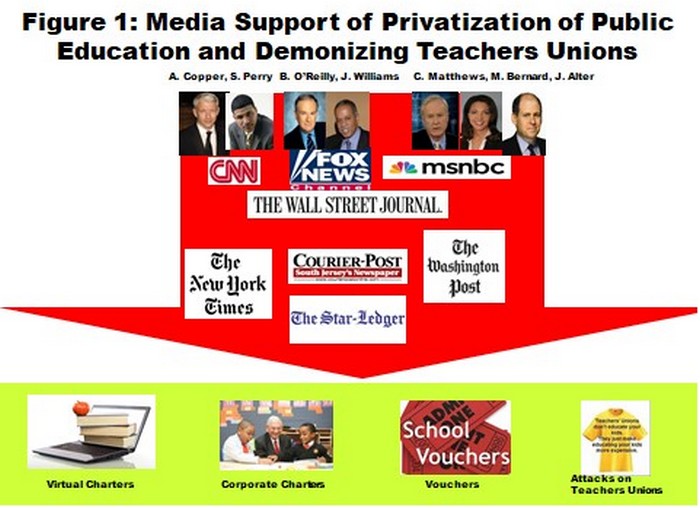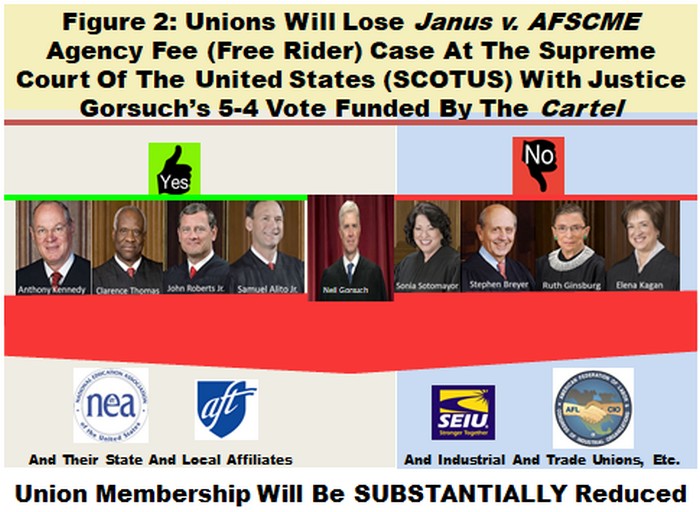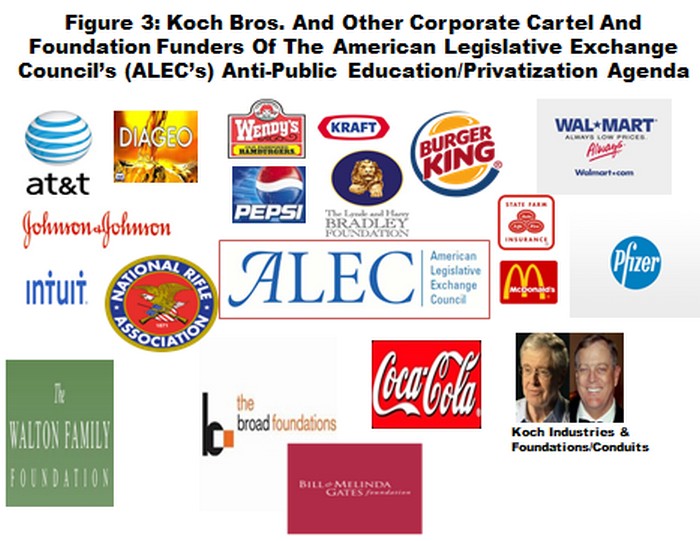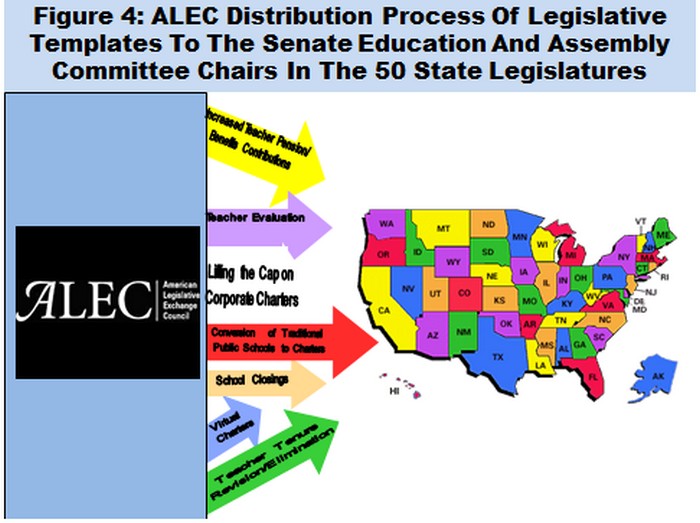|
Political
Updates: Recent polls reveal that Democrats are losing
ground in the 2017 gubernatorial races in New Jersey and Virginia
that they need to win. After leading their Republican opponents by
double digits during the spring and summer, the gap between the two
parties is closing now that we are in the final two months of the
campaigns.
The
rise of privatization in public education has been at hand since the
Wisconsin legislature passed a law allowing for the public funding of
private school vouchers in the early 1990s, and teachers and unions
have been increasingly under siege by a variety of slick marketing
strategies funded by the private-sector. And the parents and the
general public have often been captivated by the catchy slogans
and/or promotional gifts extolling the virtues of non-public
alternatives to public schools. At the same time, the corporate
Cartel of education reformers have made significant campaign
contributions to elected officials throughout the nation who, in
turn, reduced funding for public education causing public schools to
operate with less funding, especially in low-income urban districts
as the in-and-out-of-school needs of students escalate. The latter
action has created opportunities for Cartel reformers to recruit
parents to enroll their children in these so-called superior schools.
A variety of strategies are being employed.
Grassroots,
Cartel-funded groups have run ads in major newspapers and on cable
television with the talking heads endorsing voucher and charter
schools as the best way to improve public education (see Figure 1):
Anderson Cooper and Dr. Steve Perry on CNN; Bill O’Reilly
(formerly) and Juan Williams on Fox News; and Chris Matthews,
Michelle Bernard, and Jonathan Alter on MSNBC.
In
addition, MSNBC holds an annual education town hall in cooperation
with Microsoft that skews toward school privatization as well as
providing a platform for numerous voucher and charter school
advocates throughout the year. Elsewhere, the New York Times,
Wall Street Journal, and the Washington Post have
published numerous op-ed essays and articles supporting the
privatization of public education.

Furthermore,
state and local papers have been inundated with advertisements for
school choice and have taken editorial positions in support. Virtual
and corporate charters, vouchers, and continuing attacks on teachers
unions, with the most prominent, as noted in last week’s
column, slated to be the forthcoming Janus v. AFSCME Decision
which will assuredly be rendered by January 2018 (see Figure 2).
Justice Neil Gorsuch is joining Justices Kennedy, Roberts, Alito, and
Thomas to eliminate a major component of union stability. Given the
possible retirement of one of the Democratic-leaning justices,
President Trump would have the opportunity to appoint a second
Justice which would give the conservative Republican-leaning members
a 6-3 majority on the Supreme Court of the United States (SCOTUS),
shaping educational policy for a generation. Janus was a years-long
Cartel marketing strategy which was designed to weaken its union
adversaries. Private-sector education reformers have consistently
taken the long view as they advance their agenda. They have deployed
a comprehensive array of tactics that have regularly been successful.

One
of the Cartel’s most effective methods has been the
establishment and funding of the American Legislative Exchange
Council (ALEC) which recruits state and national legislators from the
50 states (see Figure 3). ALEC is subsidized by major U.S.
corporations and foundations to encourage politicians to implement
its programs across the country. It holds forums and retreats that
legislators are sponsored to attend, and Cartel members are invited
to private meetings with the attendees where they pitch their
statutory requests. The elected officials whom they encounter are
also significant recipients of the Cartel members’ financial
largesse. Thus, it appears to be a legalized form of ‘pay to
play.’ The listing of the corporations in Figure 3 is just a
thumbnail sketch of the total list of contributors who donate
millions of dollars to ALEC on an annual basis, and there is an
attempt to legislatively address all corporate interests.

But
the most important role of ALEC is to advance legislative templates
for state and national legislative bodies. As shown in Figure 4, it
has sent fully-developed bills designed to: increase teacher
contributions to their pension and benefit plans, which lowers their
static incomes; apply harsh evaluation protocols for teachers; lift
the cap on charter schools which ALEC drafted as part of Obama’s
Race To The Top (RTT) law that he pushed through a
Democratically-controlled Congress in 2009; convert traditional
public schools to charters; close schools; establish virtual
charters; and revise teacher tenure laws or outright eliminate them
as North Carolina did in 2015.

While these elements of
the Cartel’s marketing plans have put unions on their heels as
they appear to be pursuing a ‘firefighter strategy,’ only
springing to action after the fox is in the educational hen house.
At this very moment, a Cartel-allied corporation, the Bridge
Education Group, an e-learning organization, is expanding its private
academies nationally and internationally. The Liberian national
government recently awarded Bridge a contract to run all public
education in the country. Its instruction will take place in
buildings made of simple sheet metal and lumber with few traditional
comforts. Bridge teachers are not required to have college degrees,
are given 5-6 weeks training (similar to Teach for America {TFA}),
and are only mandated to read and deliver a canned script to students
that is developed by so-called experts. Bridge’s targets are
low-income K-12 students, and their class sizes range from 40 to 60
students. Bridge plans to expand its K-12 operations in the U.S. as
school privatization increases during the Trump administration.
Teachers
and unions need to cultivate a new marketing plan to forestall this
takeover.

|

